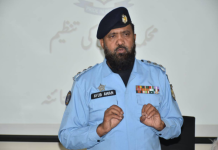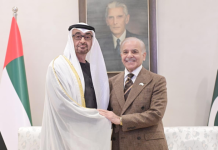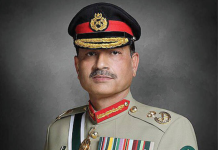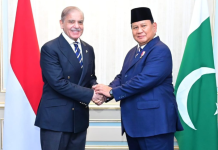Islamabad, Pakistan – The second day of the Islamabad Policy Research Institute’s (IPRI) flagship Margalla Dialogue featured in-depth discussions among intellectuals and policymakers on pressing global and regional issues. The agenda spanned regional integration, the transformative impact of algorithmic warfare, Pakistan’s soft power, and internal security dynamics.
The New Frontier: Algorithmic Warfare and National Strategy
A key focus of the dialogue was the revolution in military and security affairs driven by Artificial Intelligence (AI).
In her keynote address, Federal Minister for IT & Telecommunications, Ms. Shaza Fatima Khawaja, emphasized that technology has fundamentally altered the global landscape, with AI becoming an unavoidable reality. “The nature of warfare is shifting toward computing power, data, and algorithms,” she stated, affirming that Pakistan is committed to keeping pace with this modernization. She outlined a national roadmap to harness AI through technical expertise, a vibrant startup ecosystem, and strong government backing, adding that Pakistan is actively promoting production in both software and hardware sectors.
Echoing this sentiment, Dr. Raashid Wali Janjua, Director Research at IPRI, stated that AI is redefining warfare and human existence simultaneously. He warned that lethal autonomous weapon systems, such as swarm drones, are ushering in an era where AI-assisted armies will possess a decisive advantage. Citing conflicts in Gaza, Ukraine, and the subcontinent, he called for a global consensus to amend International Humanitarian Law and implement technical “kill switches” to maintain human control over AI-enabled weapons.
Siddique Humayun, Director Advocacy & Communications at IPRI, framed AI as the latest instrument of global dominance. “Algorithms now command the flow of information, anticipate decisions, and define visibility,” he observed. “The battlefield has expanded to data networks and perception management, where influence and security are inseparable.”
Leveraging National Power: From Soft Power to Gray Strategy
Discussions also centered on how Pakistan can effectively leverage its national power.
Mr. Javed Jabbar, reflecting on soft power, noted that while Pakistan possesses significant “gray power”—a combination of hard and soft power—it remains underutilized. He highlighted the challenge of narrative-building, stating that positive stories of progress and healing are often overshadowed by negative imagery.
Lt Gen (retd) Aamer Riaz called for a strategic shift “from aid to equity” and the effective employment of Pakistan’s gray power through strong partnerships with stabilizing forces in the region.
Regional Connectivity: Challenges and Opportunities
The imperative for regional integration faced scrutiny, with Afghanistan identified as a central challenge.
Ambassador Asif Ali Durrani, Pakistan’s former Permanent Representative to Afghanistan, noted that Afghanistan’s prolonged state of flux remains a “stumbling block” for smooth connectivity.
Gen (retd) Ehsanul Haq acknowledged that while Pakistan knows the path forward on connectivity, “certain mindsets hinder it.” He revealed that years of dialogue with the Taliban had proven futile, necessitating recent actions against terrorist sanctuaries. He urged regional forums like the Moscow format and Tashkent dialogue to persuade the Taliban government toward peace.
Offering a broader perspective, H.E. Mr. Yerzhan Kistafin, Ambassador of Kazakhstan to Pakistan, called for a collective strategy to tackle terrorism and enhance connectivity. He highlighted the immense trade potential exceeding $14 billion between Pakistan and Kazakhstan and advocated for Pakistan’s connection to multimodal corridors, particularly the Balochistan-Afghanistan-Turkmenistan and Kazakhstan route.
Concluding the session on connectivity, Mr. Idrees Zaman, a former Afghan diplomat, asserted that “peace cannot come without a stable Afghanistan,” emphasizing the need for regional coherence and a move “from uncertainty to predictability.”
The Margalla Dialogue continues to serve as a critical platform for dissecting complex geopolitical issues and charting a course for a secure and prosperous regional future.
BY: The Times Union








